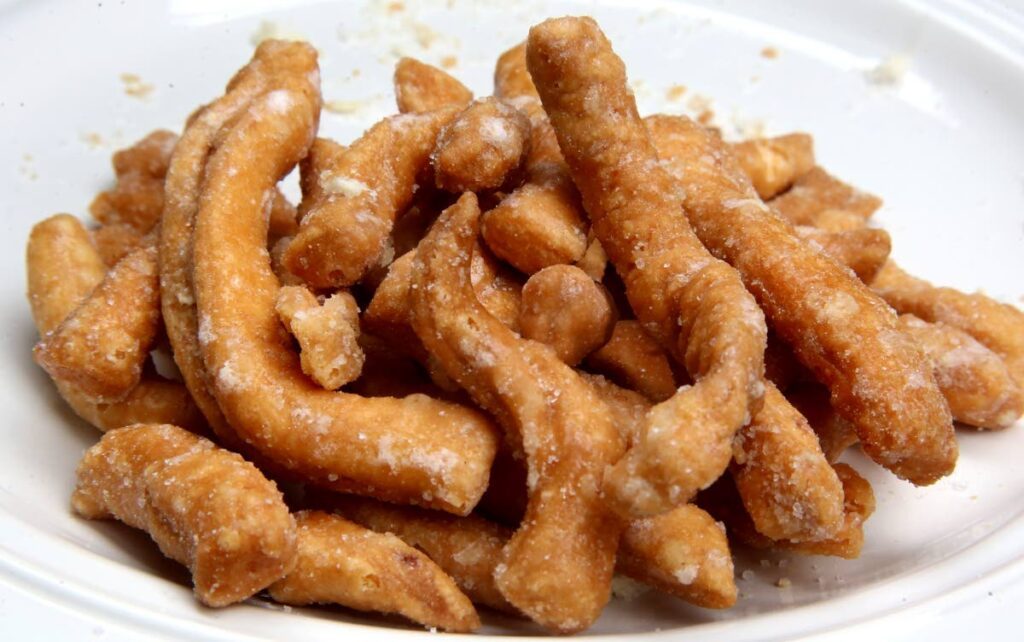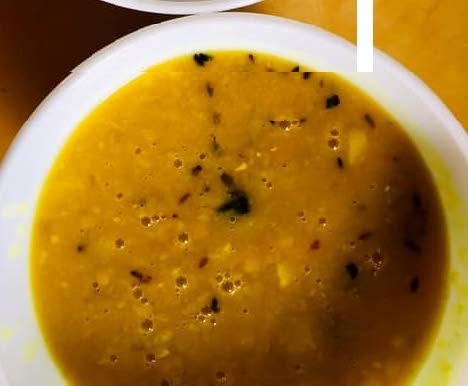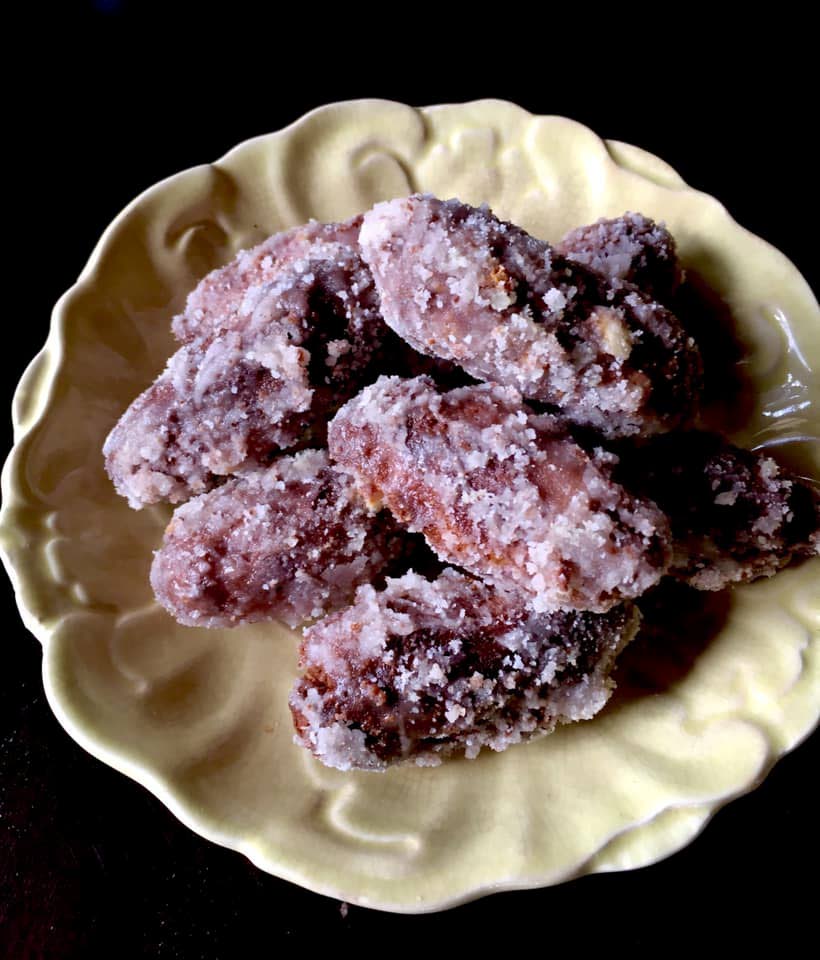Celebrating Indian Arrival Day

Next week we celebrate Indian Arrival Day, May 30, the day on which the first set of indentured labourers arrived from India on the ship called the Fatel Razak, in 1845.
Indentureship lasted close to 100 years, ending in 1917. Most of the immigrants originated from the agricultural and labouring classes of the Uttar Pradesh and Bihar regions of North India, with a smaller number being recruited from Bengal and various areas in south India.
They were accustomed to a very indigenous cuisine from the areas which they originated and unfortunately most of the foods they met were quite unfamiliar to them.
They had brought some supplies, small plants and seeds, and their water buffalo which gave them milk, from which they made dahee-yoghurt and cattle butter-ghee. Being creative and adaptable they soon used what was available in conjunction with what was brought on their journey. Some came with a good foundation in agriculture and others came as skilled craftsmen.
Soon they began to plant little kitchen gardens and made the implements that they would use to cook their foods to give them that familiar taste and texture and a level of comfort in their new homes.
Throughout the years the Indians held onto their religion, culture and foods, and as a result the delightful cuisine we enjoy today reflects a hybridised type of Indian cuisine which was born out of the necessity of survival fortitude and foresight and which also forms part of the foundation of our cuisine in Trinidad and Tobago.
Kurma
Ingredients
- 4 cups all-purpose flour
- 1 tsp ginger powder
- 1 tsp cinnamon
- ½ cup butter
- 4 tbs condensed milk
- Oil for frying
Instructions
- Place flour with spices into a bowl, add butter and rub into flour.
- Add milk and bring the dough together, add enough water to knead to a firm dough.
- Divide into 2 pieces.
- Roll dough to desired thickness and cut into strips or squares.
- Heat oil in a deep pot or wok and deep fry kurma to a golden brown colour, drain.
- Drain and coat with sugar syrup turning to coat until sugar crystallises.
Sugar syrup (paag)
Ingredients
- 2 cups granulated sugar
- 1 cup water
Instructions
- Boil sugar in water until thick, and very bubbly, when sugar spins a thread boil for another two minutes, then pour hot and bubbly onto kurma.
Curried goat
Ingredients
- 1 tbs vegetable oil
- 2 tbs lime juice
- 1 onion, chopped fine
- 6 cloves garlic, minced
- 1 tbs dark rum
- 2 hot peppers, seeded and chopped
- 2 pimento peppers, chopped
- 2 tbs minced chives
- 1 tbs minced thyme
- 3 tbs duck and goat masala or dark curry powder
- 1 tsp salt
- 2 lb lean goat meat, cut into ½-inch cubes
- ¼ cup chadon beni, finely chopped
Instructions
- Marinate the goat meat in the lime juice, minced chives, 2 cloves garlic minced, rum and one tablespoon masala powder. Leave overnight.
- Heat oil in a large iron pot, add garlic, onion, peppers, and thyme, sauté for about 4 minutes.
- Mix the balance of the curry powder with 4 tablespoons water.
- Add to pot and cook until the water has dried, add goat meat and brown, stirring occasionally.
- Add salt and cover, adding only a small amount of water to prevent sticking.
- Cook until tender, about one hour, Taste and adjust salt, add chadon beni and remove from heat.
Serves 4
Dosti roti
Ingredients
- 4 cups flour
- 4½ tsp baking powder
- 1 tbs butter or ghee, softened
- 1 tsp salt
- 1 tsp sugar
- ½ cup butter or ghee to brush while cooking
- 2 cups water (approx.)
Instructions
- Combine flour with one tbs butter, salt, sugar and baking powder.
- Add water and knead to a soft dough, cover and rest for 30 mins.
- Divide dough into 6 or 8 pieces, form each piece into a ball (
loya). - Let rest 15 minutes, then divide each loya into two and flatten slightly, paste some ghee onto four pieces, sprinkle with a little flour, then cover with another flattened
loya, like a sandwich. - Press together, cover and let rest for 30 minutes.
- Melt the remaining ghee.
- Lightly flour a surface, roll each piece of prepared dough into an 8 to 10-inch circle and cook on a hot baking stone, turn, brush with ghee, turn again brush with ghee, cook until it balloons then remove.
- Split the dosti into two and wrap in a tea towel. Repeat.
Makes 6 to 8

Dhal
Ingredients
- 1 cup yellow split peas
- 1 tsp turmeric
- 2 cloves garlic
- ½ small onion, chopped
- 1 pimento pepper seeded and chopped
- 4 cups water
- salt
- 2 tbs vegetable oil
- 1 tsp geera seeds
- 2 cloves garlic chopped
Instructions
- Wash split peas, place in saucepan with water, turmeric, garlic, geera and pimento and salt.
- Bring to boil and cook slowly until peas are tender, about 30 minutes.
- Remove from fire swizzle until smooth.
- Heat oil in a small pot, when hot add 1 tsp geera seeds, and 2 cloves chopped garlic.
- The oil should be sizzling, when garlic is coloured and geera is darkened, pour into dhal, cover immediately until sizzle dies down.
- Season with salt if needed, stir and serve.
Serves 4

Gulab jamon
Ingredients
- 4 cups flour
- 1 tsp cinnamon
- 1 tsp ground cardamom
- 1 cup butter
- ½ cup evaporated milk
- 1 14-oz can condensed milk
- Oil for frying
Instructions
- Place flour and spices into a bowl, add butter and rub into flour, add both milks and knead to a smooth and stiff dough.
- Pinch off about two-inch pieces of dough and roll to a ball, taper the ends until you have and oblong shape, then roll the ends further almost to a point.
- Heat oil in a deep pot or wok and carefully deep fry until dark golden brown, use a medium heat here or your dough will burn.
- Drain and coat with sugar syrup turning to coat until sugar crystallises.


Comments
"Celebrating Indian Arrival Day"